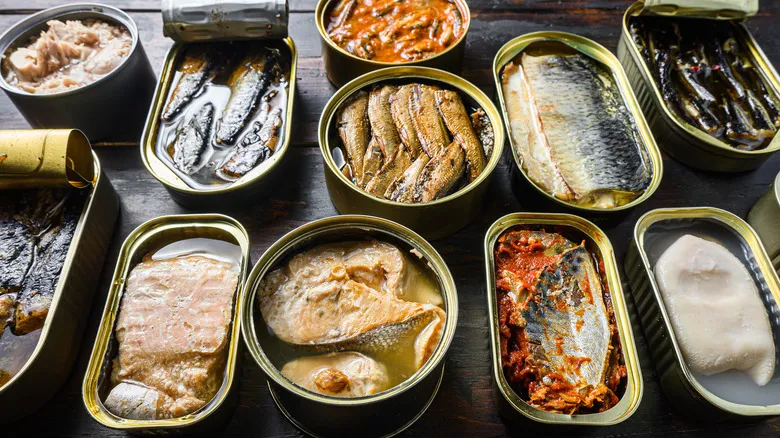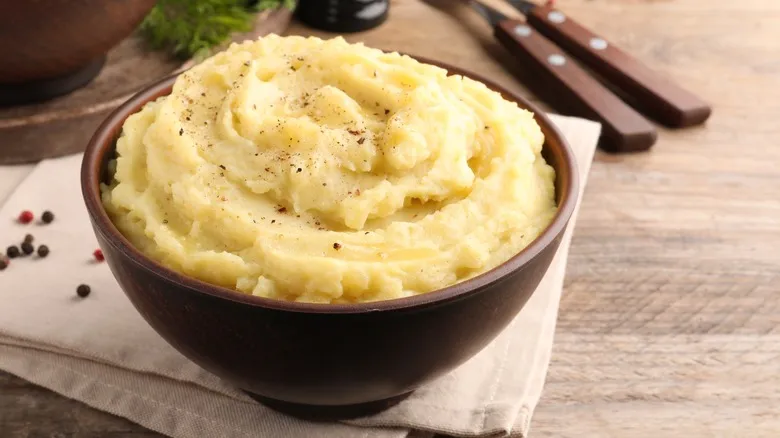Atlantic mackerel is affordable, accessible, and healthy

This silvery striped fish is plentiful, making it easily accessible and more sustainable to catch compared to rarer seafood options. As a result, canned Atlantic mackerel is generally more affordable than other canned fish varieties. Prices may differ based on your shopping location and the brands of canned fish you select. For instance, at Walmart, canned mackerel is priced at just $2.60 per pound, significantly cheaper than tinned salmon, tuna, or crabmeat.
Canned Atlantic mackerel is also a nutritional powerhouse. According to NutritionValue.Org, a cup of mackerel contains no carbohydrates and an impressive 44 grams of protein. It is also rich in vitamin D, calcium, and iron. Like many fish, mackerel is high in omega-3 fatty acids. A study published in the Journal of Gerontology even suggested that consuming dark fish like mackerel may lower the risk of cognitive decline. However, it's important to be mindful of the salt content in canned mackerel, as a one-cup serving contains 31% of the recommended daily sodium intake.
How to eat tinned Atlantic mackerel

Atlantic mackerel boasts a subtly mild flavor, making it a versatile ingredient for a variety of dishes. Canned mackerel can easily replace canned tuna, allowing you to blend it into meals like pasta or salads effortlessly. For a tasty mackerel salad, combine it with mayonnaise, mustard, chopped pickles, and garlic powder, creating a delightful spread for toasted bread topped with melted cheese. Skinless and boneless mackerel fillets in a tin are also a fantastic addition to charcuterie boards, as their rich flavor pairs beautifully with seasoned crackers.
You can even incorporate mackerel into breakfast dishes; it’s delicious when mixed with cream cheese and spread on a toasted bagel. Alternatively, enjoy it straight from the can, drizzled with vinaigrette and a splash of lemon juice.
Whether you add it to a rice bowl, pair it with tomatoes and basil for mackerel bruschetta, or savor it directly from the tin, canned Atlantic mackerel is an excellent choice to enhance your pantry essentials. Affordable, long-lasting, and incredibly versatile, this often-overlooked tinned fish has much to offer.
Recommended

Giada De Laurentiis' Secret For Whipping Up Lasagna In Just 30 Minutes

What Sausage Casings Are Made Of, Natural Or Synthetic

Why You Should Clean Wood Cutting Boards On Both Sides

Freeze A Batch Of Mashed Potatoes For All Your Holiday Parties
Next up

